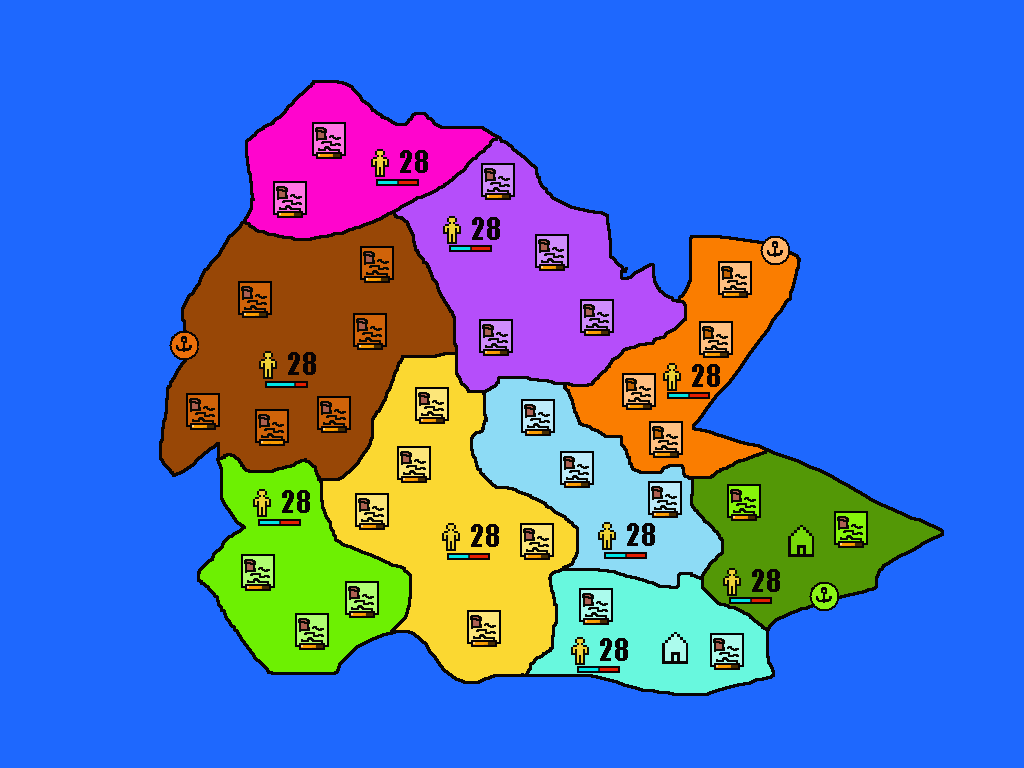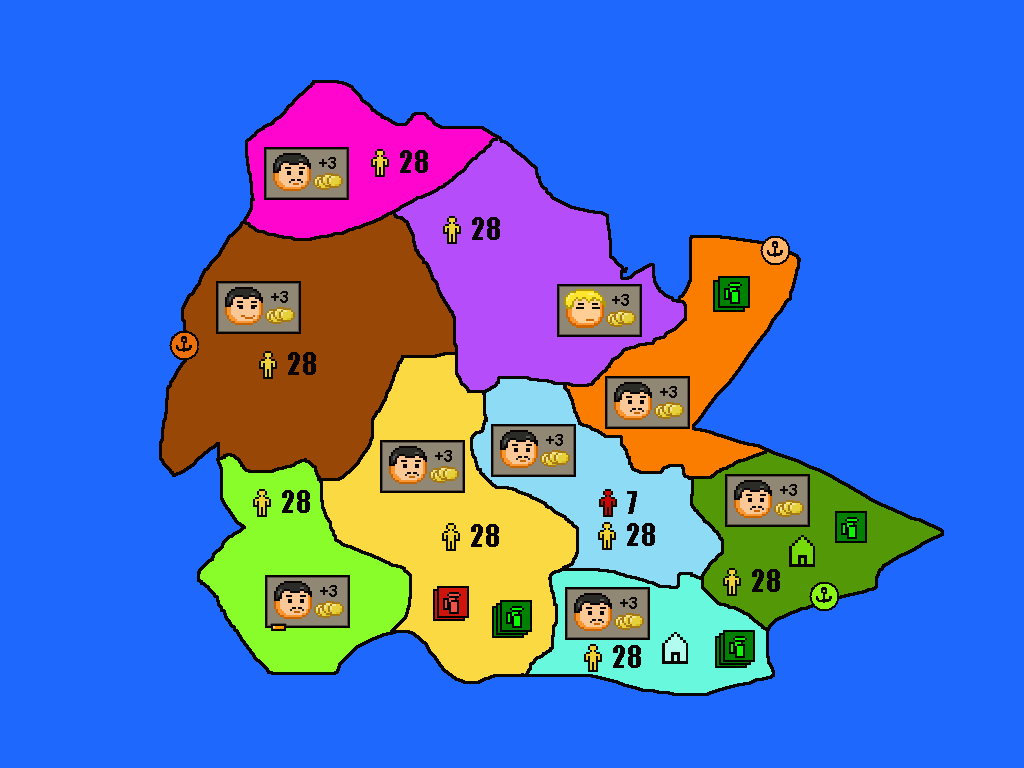Note: you can also comment on the sceen I posted, it's not only about mechanic, interface/represenation also should affect it.
The way I see it working now. If you have an available farm slot (colonized a province or cultivated the terrain or cut down the jungle or it became vacant for whatever reeason - like the owner going bankrupt) you decide to whom to sell it. You have several options (various rich personas offer how much money they want to pay - you also see what they will produce/grow there; some might also offer a bribe :D), alternatively you can "sell" it to the poor (but they are inefficient since they can't afford fertilizers and machines and don't expect taxes, but it makes you popular).
Once you sold the plot of land a new "important person" is being generated (owner of the hazienda/farm), you can borwse these personas anytime (they can also affect politics later). The money of ALL other already existing personas of that type (like coffee producers) is decreased (part of it being trasferred to the new planatator - it's assumed a son or relative), so the money is not produced here, just switches hands (an implication is that if your rich people are too poor you can't sell the land for much since they can't afford it).
So, we have covered the decision what to grow in a country (note that the player decides it - which is nice - yet do not own or control it at all - which is nice too)/
Then plantators will hire labourers, invest in fertilizers, machines, irrigations and sell the crops abroad. The player gets an export tariff (the main source of revenue, since it can be ALWAYS taxed no matter the efficiency of your tax collectors/administration, since it is a foreign export). There might be also some flat "land tax" I guess. Also labourers are taxed based on income (if you are able to collect these taxes - not easy if your administration is weak and guerillas in countryside).
Sometimes they will/can sell to internal market (inside your country), mostly edible crops (corn) - poor/independent farmers specialize with these, and sometimes coffee as well (if you have coffee processing factory so there is demand for it). Generally they always sell on the market (country/global) where they get better profit (don't forget tariffs which apply for selling abroad only). Global market has infinite demand (but the prices might be lower), for domestic a simple supply/demand system will work here.
Alright, I think I've got a better handle on your aims now. (I also agree that Tropico tended to be way too easy.
I think it was not too easy per se, at the beginning it was not. It's just after you learned how to play it it became too trivial (decrease salaries, disregard any needs of people for a short term, build mines and farms, then onces you make have tons of money make up for tit to the people so they don't rebel). Economy was too important there (mostly because the player owned and controlled everything, so he/she could optimize insanely well). That's why I want to take some control over economy (or at least direct control) out of the player.
I think it will be important for their to be a fairly large amount of detail to your map so that a lot of differentiation happens with regards to choice building locations. That way you won't just have conflicts between rich and poor, but even competing rich factions. Take the following situation: A factory baron and a shopping mall conglomerate both want the same location because of reasons. The surrounding population is heavily in favor of the shopping mall, but the land is already owned by the factory baron. The locals try to block the construction legally, and at the same time the conglomerate offers to buy the land fairly cheaply. Being that this is a dictatorship (or something like it) you can either choose to allow the factory to be built, or not.
Allowing it makes the people unhappy (though it will open up lots of jobs, which might help your overall situation if you have high unemployment), and will displease the conglomerate, but will please the factory owner and perhaps the unions who will have more workers/dues payers.
Denying it makes the people and the conglomerate happy, but pisses off the factory barons - and because they already own the land, if they refuse to sell to the conglomerate you might have a big unfinished building and useless plot of land sitting there for awhile, when you could have had productive use. Forcing the baron to sell will just piss them off more (but it could be an option).
Yeah, not necessarily everyting listed have to be there, but I would like to include at least some of these.









